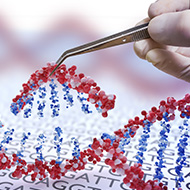- Date posted: 26th January 2023

The proposed legislation would relax regulations in the UK.
The RSPCA has expressed disappointment following a House of Lords debate on a bill that will create a new regulatory process for the breeding and use of gene-edited animals.
First announced in May 2022, the Genetic Technology (Precision Breeding) Bill - which is currently at report stage - is set to relax regulations concerning the gene editing of crops, and eventually animals, in the UK.
While the proposed legislation has been welcomed by a number of farming organisations, including the NFU, the RSPCA has voiced serious welfare and ethical concerns regarding the genome editing of animals, “whether these are farm, pets or wildlife”.
Responding to the deliberations, which took place on Wednesday (25 January), the RSPCA warned “the UK Government has refused to bring in any further safeguards or transparency in how animals will be genetically engineered.”
The charity explained that the public is "concerned about the impact gene editing will have on animal welfare” and stressed that the charity is unsure why the Government is “pushing ahead with this ill-judged policy”.
David Bowles, head of campaigns and public affairs at the RSPCA, said the charity is also calling for the proper regulation of when gene editing will be used.
“The current Bill does not have sufficient safeguards in place to ensure that animals will not suffer and to reassure the public that the technology will always be used ethically,” he said.
“Today the Scottish Parliament joined Senedd Cymru in refusing this legislation. This clearly sends a message that devolved nations reject this Bill due to ethical concerns - whilst the UK Government sadly continues to put the welfare of animals in England at risk."

